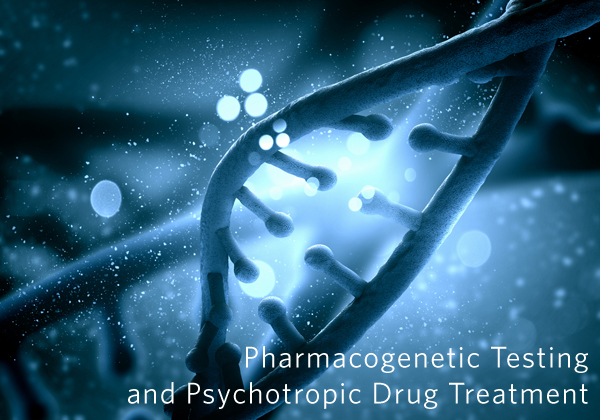
Currently, pharmacogenetic testing is a leading area of research. There are several new studies showing clinical relevance and effectiveness of specific gene markers and single-nucleotide polymorphisms (SNPs).
Depression is not just an emotion—it’s a clinical mental disorder that causes intense feelings of prolonged sadness, low self-esteem, and loss of interest in daily activities. According to the Anxiety and Depression Association of America, about 18% of the adult US population suffers from some kind of depression or anxiety disorder.2
Major Depressive Disorder (MDD) is a severe case of depression that is often associated with harmful consequences, such as suicide. These patients usually co-exhibit other harmful disorders, such as alcoholism and substance abuse.3 MDD affects about 14.8 million American adults, or about 6.7% of the US population, age 18 and older each year.
Depressive disorders can be persistent, with treatment success in only about 20% of the cases.5 Most psychiatric drugs are metabolized by the CYP450 enzymes, providing an opportunity for personalized medicine to have a positive impact on the management of this devastating illness. Individualized therapy for depression promises to revolutionize treatment and allow optimization of drug efficacy while minimizing toxicity for patients.6
Recently, the journal Discovery Medicine published “A prospective, randomized, double-blind study assessing the clinical impact of integrated pharmacogenomic testing for major depressive disorder”1 that discusses the benefit of genotyped-guided treatment for depression patients.
This study highlights effectiveness of pharmacogenetic testing as an aid to clinicians in determining treatment choice for psychotropic medications.
Pharmacogenetic markers used in the study consists of five genes involved in antidepressant and antipsychotic drug metabolism or response:
- cytochrome P450 2D6 gene (CYP2D6),
- cytochrome P450 2C19 gene (CYP2C19)
- cytochrome P450 1A2 gene (CYP1A2)
- serotonin transporter gene (SLC6A4)
- serotonin 2A receptor gene (HTR2A).
Test results are provided as an interpretive report that addresses both the safety and the efficacy of psychiatric medications. Individualized therapy is achieved by classifying medications that a patient may be taking into three color-coded bins depending on the individual patient’s gene profile.
- Green (“use as directed”; little or no drug interactions)
- Yellow (“use with caution”; moderate drug interaction)
- Red (“use with caution and more frequent monitoring”; severe drug interaction).
The test also provides additional footnotes and interpretative comments about the red and yellow category drugs to help clinicians make informed decisions.
The study was designed to last 10 weeks and involved randomized depressed adult outpatients. A Treatment As Usual (TAU) arm (n=25) and a Genotype tested arm (n=26) were compared to show effectiveness of the genotype-compatible treatment regimen.
The TAU patients were provided medications according to the clinicians’ discretion and judgment, while patients in the genotyped arm were treated based on the test report. The severity of depression was measured by blinded study raters using Hamilton Rating Scale for Depression (HAMD-17), Patient Health Questionnaire (PHQ-9), Quick Inventory of Depressive Symptomatology — Self Report (QIDS-SR), and Quick Inventory of Depressive Symptomatology — Clinical Report (QIDS-CR) administered 4, 6, and 10 weeks after baseline assessment.
The study concludes the following in favor of genotype-guided treatment:
- The genotype test doubled the likelihood of response to treatment in treatment-resistant depression patients.
- It identified patients that benefited from a genetically compatible medication regimen, 30% of whom had severe gene-drug adverse interaction. Patients in the genotyped group with medications under the red bin at baseline had 100% of their medications changed over the 10 week observation period compared to only 50% of TAU patients under the red bin medication who had a change or dose adjustment.
These results emphasize the benefits of pharmacogenetic testing as an aid to clinicians in making comprehensive and informed decisions about patient medication choices.
You can get more information on pharmacogenetic testing here.
References
- Joel G. Winner et al. Prospective, Randomized, Double-Blind Study Assessing the Clinical Impact of Integrated Pharmacogenomic Testing for Major Depressive DisorderDiscov Med, 16(89):219-227
- Anxiety and Depression Association of America. http://www.adaa.org/about-adaa/press-room/facts-statistics. Accessed on Mar 5, 2014.
- National Institute of Mental Health. Available from: http://www.nimh.nih.gov/health/topics/depression/index.shtml. Accessed on Mar 5, 2014.
- National Institute of Mental Health. http://www.nimh.nih.gov/health/publications/the-numbers-count-mental-disorders-in-america/index.shtml. Accessed on Mar 5, 2014.
- Kessler RC, Berglund P, Demler O, et al. The epidemiology of major depressive disorder: results from the National Comorbidity Survey Replication (NCS-R). JAMA. 2003;289:3095-3105
- Jolene R. Bostwick and Caroline H. Le. Pharmacogenetics and Depression: Realized Dream or Great Expectation?